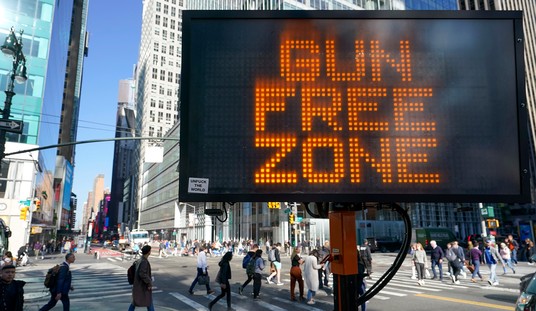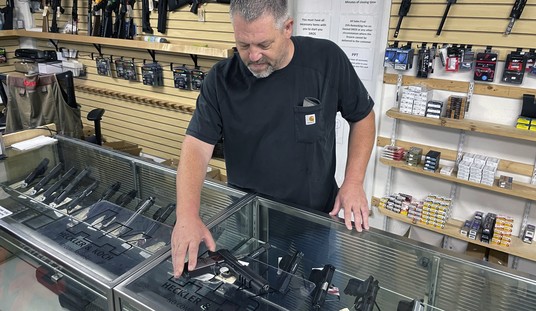The 18-year old who shot and killed 19 fourth graders and two teachers in an elementary school classroom in Uvalde, Texas on Tuesday was “bullied hard” as a younger child and had a troubled family relationship that led to repeated visits to the family home by local police, according to a new profile of the killer in the Washington Post.
The teen, who will not be named in accordance with Bearing Arms’ policy of not giving mass murderers any unneeded publicity, had several friends in middle school who spoke to the Washington Post; describing him as a nice and shy kid whose personality changed as he got older.
In middle school and junior high, [the killer] was bullied for having a stutter and a strong lisp, friends and family said.
Stephen Garcia, who considered himself [the murderer]’s best friend in eighth grade, said [he] didn’t have it easy in school. “He would get bullied hard, like bullied by a lot of people,” Garcia said. “Over social media, over gaming, over everything.”
“He was the nicest kid, the most shyest kid. He just needed to break out of his shell.”
One time, he posted a photo of himself wearing black eyeliner, Garcia said, which brought on a slew of comments using a derogatory term for a gay person.
Garcia said he tried to stand up for him. But when Garcia and his mother relocated to another part of Texas for her job, “he just started being a different person,” Garcia said. “He kept getting worse and worse, and I don’t even know.”
Family members and neighbors describe a troubled home life as well, with the suspect and his mother increasingly clashing over the past few years.
Two months ago, he posted an Instagram story in which he screamed at his mother, who he said was trying to kick him out of their home, said Nadia Reyes, a high school classmate.
“He posted videos on his Instagram where the cops were there and he’d call his mom a b—- and say she wanted to kick him out,” Reyes said. “He’d be screaming and talking to his mom really aggressively.”
Ruben Flores, 41, said he lived next door to the family on Hood Street and tried to be a kind of father figure to [the murderer], who had “a pretty rough life with his mom.”
He and his wife, Becky Flores, would invite Ramos to barbecues at their house and for sleepovers with their son, who was a few years younger. [The murderer] went by the nickname “pelon,” Spanish for bald, because his hair was often cut so short when he was younger, Flores said.
As he grew older, problems at home became more acute and more apparent to neighbors, Flores said. He described seeing police at the house and witnessing blowups between [the murderer] and his mother.
Multiple people familiar with the family, including Flores, said [the murderer]’s mother used drugs, which contributed to the upheaval in the home. [His] mother could not be reached for comment.
[The murderer] moved from the Hood Street home to his grandmother’s home across town a few months ago, Flores said. He said he last saw the grandmother on Sunday, when she stopped by the Hood Street property, which she also owned. The grandmother told him she was in the process of evicting [the murderer]’s mother because of her drug problems, Flores said.
None of this excuses or justifies the killer’s actions, of course, but it does provide some perspective on what led up to his decision to commit mass murder, and his prior contacts with law enforcement and his apparently declining mental condition open up new questions on what steps could have been taken to address his mental health issues in the months and perhaps even years beforehand.
On Tuesday, Garcia was in algebra class in San Antonio when he started receiving a slew of texts with the news of what had happened in Uvalde. He didn’t believe it at first. He opened his phone’s browser and Googled the shooting and saw [the murderer]’s name.
“I couldn’t even think, I couldn’t even talk to anyone. I just walked out of class, really upset, you know, bawling my eyes out,” Garcia said. “Because I never expected him to hurt people.”
“I think he needed mental help. And more closure with his family. And love.”
Only one of those things could have possibly be remedied through government action, and with Democrats going all in gun control in the wake of the shooting any attempt to address the crumbling state of our mental health systems isn’t likely to get far in Congress, even though it should be (in my opinion anyway) one of those areas where bipartisan agreement is possible. Beyond the incredibly rare circumstances of mentally ill individuals engaging in these types of targeted attacks, we have much broader issues with depression, isolation, and anxiety. There’s a lot of talk about the rise in violent crime and “gun deaths” since the start of the COVID pandemic; a phrase that includes all homicides, suicides, and accidental fatalities, but news stories highlighting the record-high rates of fatal drug overdoses and alcohol-related deaths quickly vanish from our news feeds and are rarely acknowledged by politicians.
I’d argue that these are all symptoms of the same big issue, but Instead of doing the admittedly hard job of overhauling our mental health system and improving access and quality of care (which would be of benefit to millions of Americans struggling with their mental health) most politicians would rather just “do something”, even if that something would do nothing to prevent atrocities like the school shooting in Uvalde.









